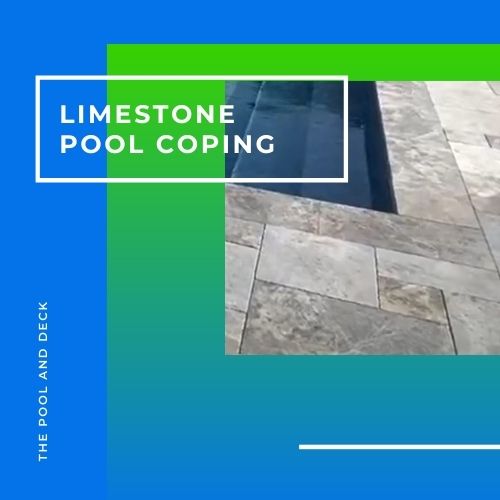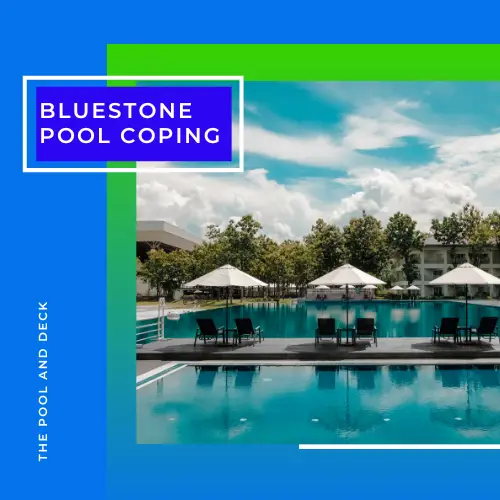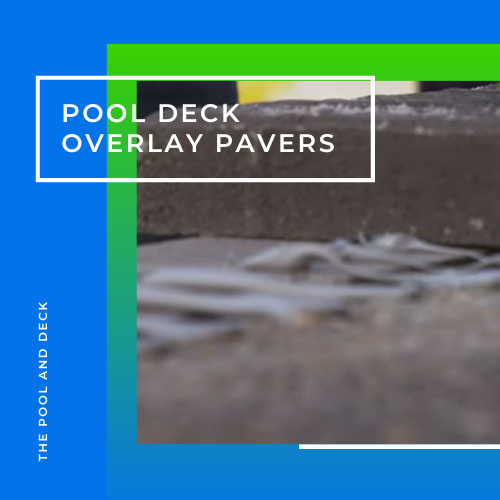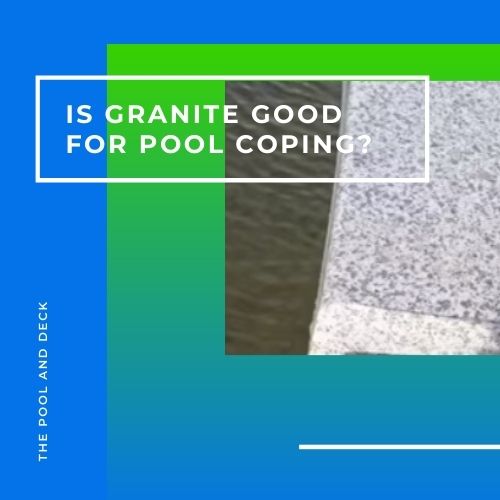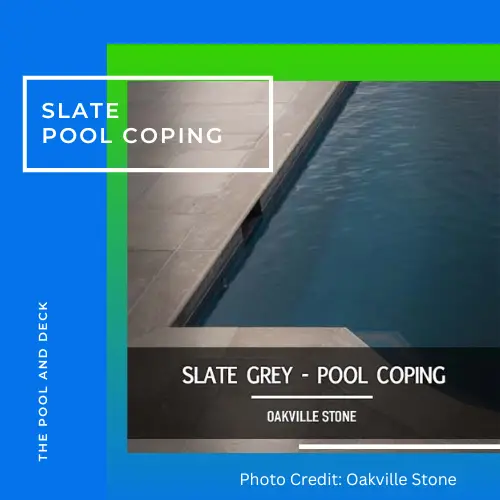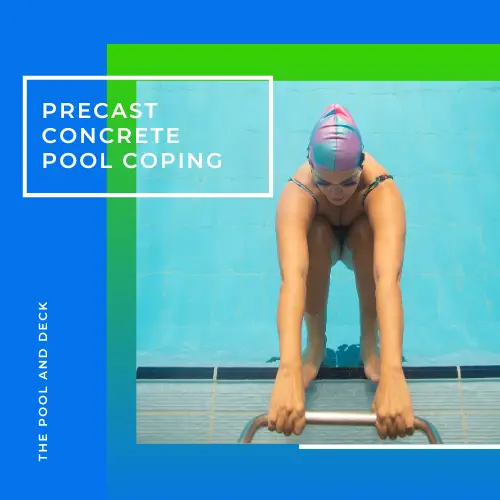Do Concrete Pool Decks Need to Be Sealed? Comprehensive Guide 2025!
As an Amazon Associate, I earn from qualifying purchases.
Table of Contents
Do Concrete Pool Decks Need to Be Sealed?
Yes, sealing concrete pool decks is essential for both protection and appearance. Without a sealer, pool decks are vulnerable to water damage, stains, and surface wear.
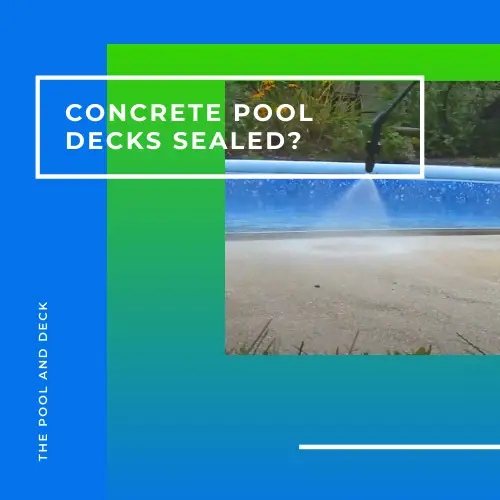
Concrete pool decks need to be sealed, both for protective and aesthetic reasons.
A penetrating sealer seeps into the concrete pores to protect from within. Topical sealer bonds and forms a film to protect from abrasion & weathering.
A topical sealer can perform other functions too. It determines the final sheen level of the concrete pool deck.
The sealer film can also incorporate non-slip & UV resistant additives. Decorative chips, glitter particles or color pigments may also be added to the topical sealer for special effects.
Using the best concrete sealer for a pool deck enhances durability while preventing cracks and discoloration.
Choosing the Best Concrete Pool Deck Sealer
The best concrete pool deck sealer depends on factors like climate, foot traffic, and maintenance preferences. A high-quality sealer should:
- Resist water and chemical damage
- Protect against UV rays and discoloration
- Offer a non-slip surface for safety
- Enhance the deck’s aesthetic appeal
What Happens If You Don’t Put a Sealer on Concrete?
Concrete is a durable and strong building material. No wonder it forms the backbone of all of America’s infrastructure. Tunnels, bridges, runways, skyscrapers. Think of anything massive and you can be pretty sure it is made from concrete.
For all its strength, concrete has chinks in its armour. The weaknesses of concrete need to be compensated. For example, concrete slabs without reinforcement steel rebars would crumble under flexural load.
Sealers, both penetrating and topical, are there to compensate for the inherent weakness of concrete.
In this post, I will explain about concrete, its strengths & weaknesses and how sealers help overcome those weaknesses.
What Are the Strengths of Concrete?
The biggest strength of concrete is its compressive strength. Concrete used in residential projects typically have a compressive strength of 2,500 – 4,000 psi (pounds per square inch). A concrete pool deck is likely to have a strength of 3,500 psi.
Concrete can be poured into almost any shape, such as slabs, beams and columns. Further, it can either be precast or cast in situ. This makes it indispensable in building construction.
Concrete is economical and very durable, provided a few simple protective precautionary steps are taken. Concrete has a few other strengths (though not relevant to pool decks) such as it is non-combustible, fire resistant, wind & water resistant, etc.
What Are the Weaknesses of Concrete?
For all its strengths, concrete has three significant weaknesses that can affect the performance of a concrete pool deck.
Low Flexural Strength
Even though concrete slabs have fairly high compressive strength, they have very low tensile or flexural strength.
The poor flexural strength of a concrete pool deck is compensated by reinforcing the slab on grade with steel rebars. Without the rebars the concrete pool deck would suffer major cracks due to soil subsidence or seismic activity.
Concrete Porosity
Concrete appears to be rock solid, but in fact it is full of pores. The pores were formed during the curing phase as water and entrapped air moved to the surface. Water can seep into these pores and weaken the concrete.
Concrete surfaces disintegrate by a process called scaling. Water within the concrete expands and contracts as the temperature changes. This puts physical pressure on the cement causing it to break down into dust.
Water seepage into the concrete pores can also result in the corrosion of the steel reinforcement bars and a reduction in the tensile strength of the concrete.
A penetrating sealer will seep into the tiny pores (capillaries), fill them up, solidify and block them, so that water can not enter.
Soft Top Layer
When freshly poured concrete is leveled and floated the fine particles (cement) are pushed up while coarse particles (sand & aggregates) settle at the bottom. As a result the top concrete layer is quite smooth but also very weak. It can be abraded relatively easily by foot traffic and weathering.
A topical sealer is required to protect the soft top cement layer. Acrylic, PU or other types of topical concrete sealers penetrate enough to create a strong bond, but mainly form a film on the concrete surface.
The topical sealer film protects the concrete from abrasion, weather and chemical spills.
How Often Should You Seal Concrete Pool Decks?
Penetrating Concrete Sealer
A good quality penetrating sealer will last for 10 years or more as it gets impregnated within the concrete pores. Two coats of penetrating sealer should be sprayed on (wet on wet) new cured concrete.
I recommend Foundation Armor SX5000 Water Based Silane Siloxane Penetrating Concrete Sealer.
The Armor SX5000 WB is a water-based Department of Transportation approved Silane-Siloxane penetrating concrete sealer. It penetrates deep into the substrate where it chemically reacts to form a hydrophobic barrier within the pores that reduces the absorption of water by up to 95%. Protects concrete, from within, without changing the look or feel of the surface.
Topical Concrete Sealer
Topical concrete sealers do not last that long as they protect by forming a film on the concrete surface. The film is constantly depleted due to abrasion, weathering and sun’s UV rays.
Two coats of topical concrete sealer should be applied every 2-3 years.
I recommend Foundation Armor AR350 Solvent Based Acrylic Wet Look Concrete Sealer.
The Armor AR350 is a solvent based acrylic wet look sealer that is designed to seal, enhance, and protect a variety of interior and exterior concrete and concrete paver surfaces.
The Armor AR350 penetrates deep into the surface where it chemically bonds to the pores of the concrete and pavers, creating a long lasting, non-yellowing, breathable finish that enhances dull or faded surfaces by creating a darkened wet look, and low gloss finish.
Can I Put Topical Sealer Over Penetrating Sealer?
Yes you can put topical sealer over penetrating sealer. In fact concrete pool decks must be sealed with both penetrating and topical sealer.
The recommended process is as under.
New Concrete
Ensure that the concrete pool deck has been washed with soap water, rinsed and allowed to dry before the sealer application. Apply two coats of penetrating concrete sealer (wet on wet) using a backpack or hand pump sprayer.
Repair cracks, if any, on the concrete and once make sure the surface is clean, free of dust & stains. You should apply two coats of topical concrete sealer using a wide roller (say 18”) with a ¼” nap. The option of spraying the topical sealer may also be there, but do check the product label.
Give a gap of 24 hours between coats or as recommended on the product label.
Old Concrete
Topical sealers should be applied every 2-3 years. You will know it is time, if your pool deck is looking dull and faded. The method of applying the topical sealer is the same as above. However, the process of cleaning the pool deck may require more effort to get the grime off.
Penetrating sealers need to be reapplied only after 10-12 years. This is a long time and you may actually choose to resurface the concrete pool deck.
But, if you don’t, then make sure to sand off the old tropical sealer to expose the bare concrete. Else the penetrating sealer will not seep in.
Thank you very much for reading the post. I do hope you found it informative and helpful.




